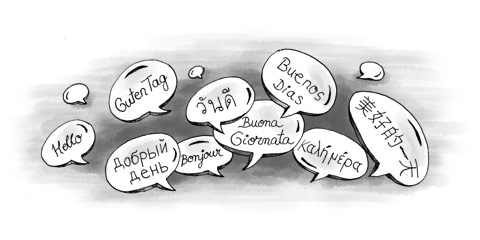If you want to learn Arabic, you will find many language schools in Dubai. One of the most popular ones is the Arabic Language Centre at the Dubai World Trade Centre, which offers courses from beginner to advanced for general conversation. They also offer some courses for specific industries such as tourism, health or finance.
If you are looking for more personalized courses, you can also hire a private teacher. This option is preferred by many expats.
Self-study
If you don't have much time or if you have a limited budget, you can take self-study courses. However, keep in mind that it's harder to learn this way because you will need a lot of motivation to succeed with this method. You should also know that you can master the basics, but you won't become fluent by studying on your own.
You can find self-study courses either on the internet or with books and CDs. With the increasing number of expatriates in Dubai, there are a lot of new websites which offer tailored courses in Arabic.
In addition to courses, you should try to practice as often as you can. Once you have learned the basics of Arabic, you can watch movies in Arabic, find a language partner, etc. A tandem with an Arabic native could be really beneficial because you will learn Arabic while discovering the culture.
Arabic language certification
The only Arabic language certification that you can find in Dubai will be those awarded by your language school at the end of your studies. As of 2010, there is no national Arabic language proficiency test in Dubai.
Basic vocabulary
Here are some common Arabic phrases to practice before your arrival in Dubai.
Marhaba: Hello
As-salam àlaykum: Peace be up on you (Islamic greeting)
Wa àlaykum as-salam: And peace be upon you (answer to Islamic greeting)
Min fudluk: Please
Shukran: Thank you
Àfwan: You're welcome
Na'am: Yes
La'a: No
Ma'assalama: Take care
Wada-aan: Good bye

